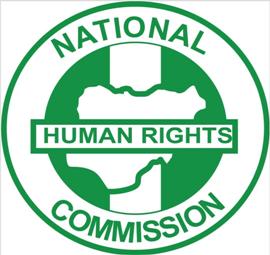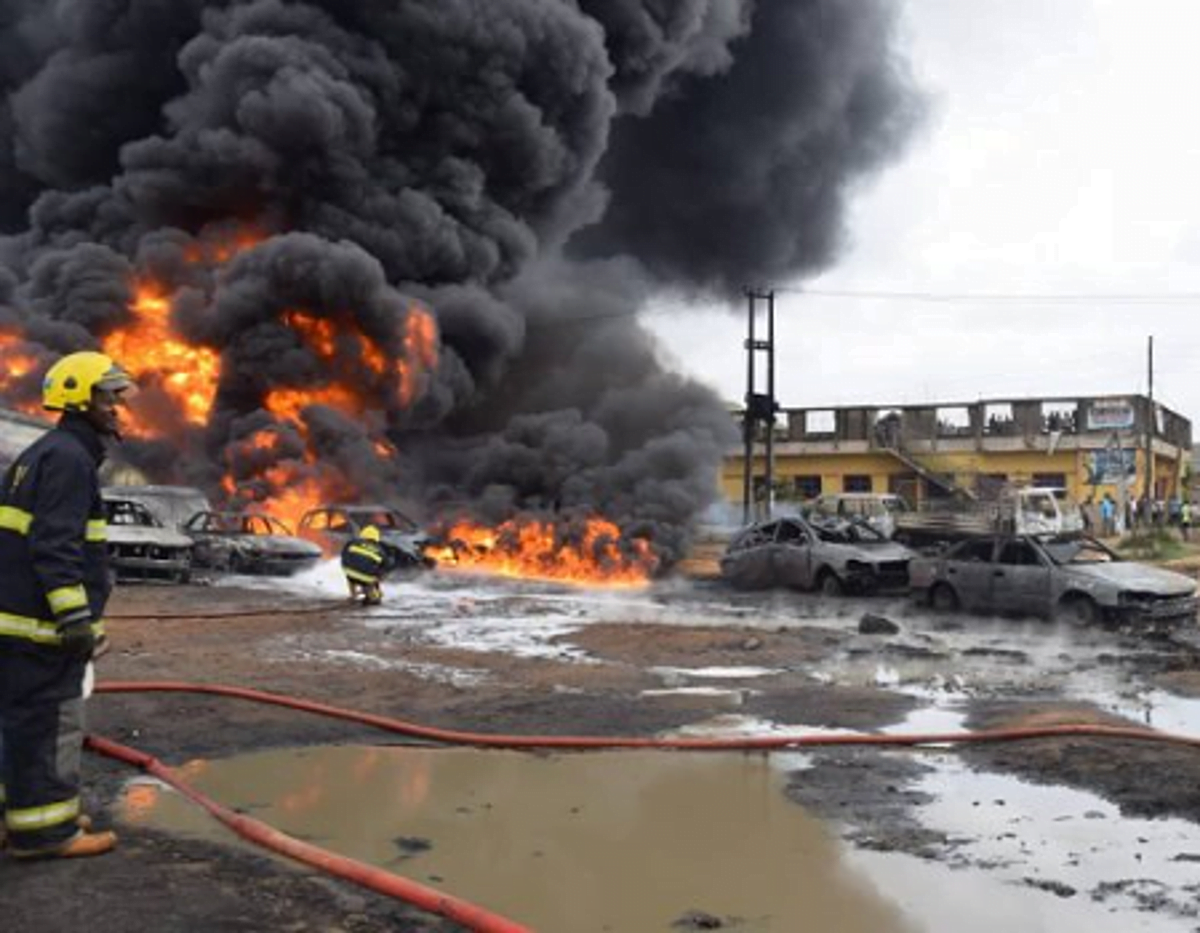Editorial
Curbing avoidable deaths on our waterways
About two weeks ago, the nation woke up to the sad news of not less than 106 people who died when their boat capsized on their return journey from a marriage ceremony in Gboti in Patigi Local Government area of Kwara State. The riverine community is said to be a border town between Kwara and Niger States.
The Police in a statement signed by SP Ajayi Okasanmi Police Public Relations Officer, Kwara State and made available to the press said that the boat which capsized between Ebu and Dzakan village in Patigi local government area was loaded with about 250 passengers out of which 106 people died.
The statement read, “Among the casualties were people from Ebu Village with 61 casualties, Dzakan Village with 38, Kpada Village with 4 dead, and three (3) other casualties from Kogi State, putting the total number of casualties at 106 and the total number of rescued people at about 144.”
The boat was said to have conveyed about 250 people from a village called Gboti via Patigi after a wedding ceremony to Ebu Village and Dzakan Village, all within Patigi’s local government area.
On leaving the shore, one part of the boat by the engine side was said to have collapsed where water penetrated the boat, which ultimately led to the boat capsizing.
Reports indicated that all the 144 survivors were fortunate to have been able to swim to the shore of the river when the boat capsized while the 106 victims including aged men, women and children who could not inevitably died from the unfortunate incident.
The grieving over this disaster was still on when there was another report of boat mishap in Cross River State involving 14 medical students who came to the state from their different universities to attend annual Health Week put up by the Nigeria Medical Students Association.
The 14 students were said to be on boat cruise at Marina Resort when the speedboat capsized, fortunately because of the help said to have been received from the locals in the area as well as some naval staff, 11 of the medical students were saved while the remaining three died.
These were said to be final year medical students who had their dreams aborted bringing untold agony and anguish to their parents and loved ones. In the two reports above, no one will say that the losses were not heavy and devastating.
The reasons largely given for these recent boat mishaps were that of overloading, refusal to use the life jackets, travelling in the night, in a nutshell, refusal to adhere strictly to the safety rules on waterways.
For instance, the Kwara boat accident was due to overloading with none of the passenger using the life jackets that could make the passenger float on top of the water for about five hours, according to expert in case of any accident. This was also worsened by the fact that the accident happened in the night when little or no help was available.
The same allegation of overloading was also levelled against the operator of the speedboat that took the medical students on the ill-fated cruise in Cross River State. The speed boat was said to have the maximum capacity of carrying nine passengers but went to carry 14 and that the saving grace was the fact that the capsize happened during day else it would have been more fatal.
In all of these, what is quite evident is that these unfortunate accidents and many before it have largely been due to human errors usually arising from failure to comply with the safety procedure guiding inland water ways transportation.
It is against this background many believe that the authority of Nigeria Inland Waterways (NIWA) will have to sit up and ensure that these grievous acts of indiscipline and outright corruption putting lives of many at grave danger is curbed.
NIWA in partnership with relevant stakeholders should use these two unfortunate incidents as a spring board to step up its advocacy programmes on standard safety procedure on our inland waterways and of course not just be a toothless bulldog, any boat operators found to be cutting corners should be dealt with decisively.
Many have attested to how water transportation could be very smooth and faster but the issue of compromised safety will certainly be a big dent on any efforts geared towards developing this sector of our economy.
Now is the time for all hands to be on deck to arrest this ugly trend and make travelling on our waterways safer and enjoyable, we really must not continue to lose our human resources in such despicable ways.
Editorial
Nigeria’s Human Rights conundrum: A call to urgent action


Nigeria’s human rights landscape has long been a cause for concern, but the latest revelation by the National Human Rights Commission (NHRC) paints a particularly dire picture.
The shocking disclosure that 1,580 human rights violations occurred in March 2024 alone is a stark reminder of the precarious state of human rights in our country.
Even more disturbing is the breakdown of these violations, which reveals a disproportionate impact on the North Central region and a troubling involvement of state actors, including the police, military, and DSS.
This crisis of accountability and protection demands urgent attention and action from all stakeholders, and it is our hope that this editorial will contribute to a much-needed national conversation on this critical issue
The most vulnerable members of our society, children, were not spared, with 542 cases of rights violations recorded. Domestic violence, which is becoming increasingly rampant, accounted for 471 cases.
Non-state and private actors were also responsible for 32 and 36 violations, respectively, while three cases of rights violations were recorded against people with disabilities.
The NHRC’s report is a wake-up call to all stakeholders, including the government, civil society organizations, and individuals, to take immediate action to address these violations.
The fact that social, economic, and cultural rights accounted for 157 violations, and referred cases stood at 24, highlights the need for a comprehensive approach to addressing human rights issues in Nigeria.
It exposed 499 killings and kidnappings, 71 violations of the right to life, and 301 school children abducted in Kaduna State alone.
The commission’s Senior Human Rights Adviser, Hilary Ogbonna, revealed these shocking statistics, which include 40 people killed in Benue State and four deaths in Nasarawa State during palliative distribution.
The report highlights a broader pattern of human rights violations, including domestic violence, abductions, and children’s rights abuses. It’s alarming that the right to life is being violated in various ways, and human rights violations are escalating.
This is despite Nigeria’s adoption of the Universal Declaration of Human Rights and over two decades of democratic governance.
The Global Peace Index Report’s ranking of Nigeria as one of the least peaceful countries in the world (144th out of 163) is a damning indictment.
The report emphasises the gravity of human rights abuses in Nigeria, where basic rights like freedom from oppression, participation in decision-making, and access to fundamental needs like food, work, medical care, and education are frequently denied.
However, the Universal Declaration of Human Rights, adopted in 1948, enshrines fundamental rights like freedom from oppression, participation, and access to basic needs.
While many countries, including Nigeria, have incorporated these rights into their constitutions, the reality on the ground is starkly different.
In Nigeria and Africa, people face physical and mental torture, police brutality, domestic violence, kidnappings, and detention without trial.
Since its declaration, it has become fashionable for most countries of the world, Nigeria inclusive, to entrench the catalogue of rights in their constitutions.
But, regrettably, in Nigeria, and indeed Africa, people are usually subjected to physical and mental torture ranging from cases of accidental discharge and other forms of police brutality, domestic violence, kidnappings as well as detention without trial.
Also, insecurity, in its various forms, has become a pervasive issue in Nigeria, manifesting as banditry, kidnapping, terrorism, and communal conflicts. This has resulted in the loss of lives and property, highlighting the government and security forces’ failure to fulfill their social contract with citizens. The lack of remedies for victims, including compensation and access to justice, has further worsened the situation.
The Nigerian Constitution guarantees the right to personal liberty, a fundamental feature of any democratic setting.
However, persistent obstacles, including legislative constraints, societal prejudices, and systemic shortcomings, hinder the full realization of human rights. It is crucial to acknowledge these challenges and work collectively to dismantle them.
The myriad of challenges facing Nigerians includes insecurity, separatist agitations, torture, illegal detention, extortion, and extra-judicial killings by law enforcement agencies.
Limited access to justice, abuse of court process, and disregard for court orders, as well as the increased cost of living and deteriorating living conditions, further hamper citizens’ ability to lead safe and meaningful lives.
Human rights protection plays a critical role in fostering vibrant democracies, promoting social cohesion and diversity, and cultivating a conducive and peaceful living environment.
To address these challenges, we recommend strengthening the independence of the judiciary, press freedom, democratic rules and principles, human rights education, and public vigilance. This will help curtail human rights abuses and promote good governance in Nigeria.
We urge the government, civil society organisations, and individuals to work together to address these pressing issues and ensure that the rights of all Nigerians are respected, protected, and fulfilled.
We also call on civil society organisations and individuals to continue to advocate for human rights and hold those in power accountable for their actions.
We also urge the government to take immediate action to address these violations, investigate and prosecute perpetrators, and implement policies to prevent future abuses. We also call on civil society organisations and individuals to continue advocating for human rights and holding those in power accountable.
The time for change is now. We must work together to ensure that the rights of all Nigerians are respected, protected, and fulfilled.
Editorial
Endless turnaround maintenance of Port Harcourt Refinery


Since 2021 when the turnaround maintenance of the Port Harcourt Refinery started, there have been heaps of failed promises of the production commencement date.
First, it was former Minister of State for Petroleum, Timipre Sylva promising severally of commencement of productions of Port Harcourt Refinery, but these promises never came to limelight till he resigned for political calling.
Next was the Managing Director of Port Harcourt Refinery, Ahmed Dikko who at a time said the turnaround maintenance was 98 percent completed and would have commenced operations in December 2023. That promise again was unfulfilled.
The Group Managing Director of Nigerian National Petroleum Company Limited (NNPC Ltd), Mele Kyari equally said that Port Harcourt Refinery would start production in two weeks time, that elapsed in April, 2024. April has come and gone.
The Head, Corporate Communications of NNPC Ltd, Olufemi Soneye was also quoted to have said that the reason for non-commencement of operations of the Port Harcourt Refinery was regulatory and compliance tests. As it seems, all efforts to restart the operations of the Port Harcourt Refinery and by extension other refineries, have been futile.
Political watchers have adduced poor management, corruption, sabotage and lack of political will as some of the problems confronting smooth operations of our refineries. They particularly accused those benefitting from importation of petroleum products as being responsible for the non-functionality of the four refineries in Nigeria.
Political will, of course, plays a major role in shaping directions the policies go. Political will in this instance translates to good leadership, and in this case, the buck stops at the table of the Federal Government, particularly the President, who doubles as the Minister of Petroleum.
Petroleum being the mainstay of the country’s economy should be given all the attention it deserves. The reason being that virtually everything in the country is tied to the petroleum products situation.
Since the announcement of the removal of fuel subsidy on May 29th, 2023 by President Tinubu on assumption of office, life has not been the same in Nigeria. Cost of living has risen astronomically, consequent upon the hike in price of petroleum products.
In the midst of plenty, courtesy of the abundant human and material resources, Nigeria is still often described as the poverty capital of the world. What an irony! Turnaround maintenance of the refineries subsists without end. Every hope is now placed on the Dangote Refinery, a private outfit. While the diesel price slash is commendable, how on earth will a single private entity take the whole country to Eldorado?
We cannot regulate what we do not produce, this is a natural principle that cannot be contravened. We only pray that Port Harcourt Refinery comes on stream someday.
We look forward to that time. Our position is that Government agencies saddled with the responsibility of providing fuel and other petroleum products to Nigeria must do their work and justify their pay.
This onerous task is mandatory and statutory to them and shall amount to disservice if they fail. Our prayer is not for them to fail, but that they fulfil their vows and make the country great for the overall interest of all.
Tecnimont, the Italian company undertaking the $1.5 billion rehabilitation project of the Port Harcourt Refinery has through its Local Managing Director, Gian Fabio Del Cioppo pledged to fulfil the terms of contract, so as far as we are concerned, there is nothing stopping the country from achieving the target of the turnaround maintenance project.
The only clog would of course be lack of political will, which we know could be cultivated. So let all hands be put on deck to achieve results.
Editorial
Gas explosions: Nigeria and its avoidable tragedies


Nigerians die daily for reasons so avoidable it would make a 19th century peasant weep. The deaths are often a product of systemic wickedness, nonchalance, and greed. Too often have gas explosions claimed the lives of Nigerians untimely. Whether it is the leaders refusing to enforce the checks and balances for personal gain, or citizens selling defective gas cylinders, it all balls down to a collective aversion for kindness.
The internet is rife with news of this tragedy occurring in a Sisyphean cycle. Jolted by the cries of the populace, the leaders promise reprieve, release press statements and in the weeks that follow, little to nothing happens. “One must imagine Sisyphus happy,” Camus wrote. Unfortunately, our Nigerian dead imagine nothing.
While people relaxed from their labour, were preparing for the Workers Day celebrations, nine people including a pregnant woman were injured in Tuesday’s gas cylinder explosion at Alaba Lane, Alayabiagba Community of Ajegunle-Apapa, Lagos.
“The fire explosion started around 1:30 pm and immediately, two tricycles were burnt, school children coming back from school were affected. A particular young man was seriously affected as his body was peeling off, but rushed to the Gbagada General Hospital,” according to reports.
The usual suspect is, of course, negligence, as the Director of Lagos State Fire and Rescue Service, Margaret Adeseye, puts it: “preliminary investigation revealed that several various gas cylinders traded within the neighbourhood have one triggered from a susceptible leakage leading to the snapping of a high tension cable and resultant Fire.”
The explosion razed down “four commercial tricycles, six lock-up shops, a bungalow part of properties, while salvaging adjoining structures including a major fuel service station.” Children were hurt, the future of the nation plunged, as usual into avoidable misfortune.
The way out is through. The press releases are wonderful PR statements but they do not bring back the dead, as was the case in Ogun State recently where a truck explosion cost the nation another life. The leaders must enforce the checks and balances put in place. The law is no decoration.
We mustn’t wait until a politician’s family member is involved in a tragic gas accident before “banning” (as is the default response of the Nigerian leadership). The leaders must realise that such misfortunes are contagious, and money is hardly a bulwark against 3rd degree burns in a nation where all its doctors are fleeing.
Renewed Hope requires renewed action. This is all that Nigerians ask of its leaders. All agencies responsible for monitoring trucks, cylinders need to work together to defeat this peculiar evil. Like COVID-19, gas explosions are no respecter of persons.
Of course, citizens too must do their part and resist the allure of profit over the death of others. A society without empathy is headed for a dystopia. It will not matter the price of petrol or electricity tariff, if all that matters is the pursuit of super profit at the expense of one’s neighbour. We owe it to the dead to live fully and graciously. To escape, as we should, avoidable tragedies.
-
capital market2 years ago
Rt.briscoe, FBNH, Others halts negative performance of stock market
-
Finance3 months ago
Court orders Sen. Victor Umeh to repay N136m bank debt to AMCON
-



 Abuja Update2 months ago
Abuja Update2 months agoUNDP, FG partnership needed to achieve inclusion, equity- Minister
-
Abuja Update1 month ago
Banks drive stock market performance with N147bn gain
-



 Business2 weeks ago
Business2 weeks agoTingo Group unveils Tingo Electric, Tingo Cola drink at Lagos launch
-



 Health3 weeks ago
Health3 weeks agoCapacity training will reduce migration of health workers- NPHCDA
-
News4 months ago
Oil thieves sponsoring malicious media campaign against Navy – Spokesman
-



 Infotech1 month ago
Infotech1 month agoWorld Backup Day: NITDA urges Nigerians to ensure backup of data






